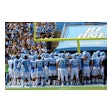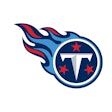Copyright 2016 Bangor Daily News
Bangor Daily News (Maine)
BREWER, Maine -- Team success is forged in large part on the development of individual physical talent.
But just as important in separating a championship attitude from competitive frustration is team chemistry, that bond between players and coaches and among the players themselves.
Pivotal to that chemistry is leadership within the team, and providing players who assume that role some assistance in handling those responsibilities was the focus of the Penobscot Valley Conference Leadership Summit on Tuesday at Jeff's Catering.
"A lot of times we select captains and we really don't give them the tools on how to be a captain," said Bunky Dow, athletic administrator at Mount Desert High School in Bar Harbor, "and this is where this leadership program came about in the PVC because we all felt the same about this."
More than 250 high school student-athletes, coaches and administrators from PVC-member schools turned out for the event sponsored by The First National Bank. Veteran coach and motivational speaker Rob Miller of Proactive Coaching offered insights into the challenges facing team leaders and made suggestions about how to deal with the often emotional issues that can make or break a team.
"We're hearing there's a lack of leadership out there," said Miller. "Part of it is, in the last 15 or 20 years we've become really good at team building, but we've got to understand that team building and leadership are two different things, so we have to help our kids lead.
"With team commitment, you can't hope something happens, you have to intentionally make it happen. We don't want T-shirt slogans, we want action statements," he added.
Miller said a key challenge is that a player's initial introduction to a sport typically is more adult driven and organized. Previous generations relied on pickup games at young ages that included impromptu problem-solving experiences before referees, coaches or parents were there to arbitrate disagreements.
"Kids have kind of come through sports without that natural leadership taking place," said Miller. "People are finally starting to see that we've had a void of natural leadership training because it's adult controlled whether you have a 3-year-old being coached by coaches or it's a little later on.
"The job of leadership is still the same, but I don't know if the kids know what it is, and that's what we're trying to clarify," he said.
Conference participants broke into smaller groups to discuss various leadership issues and how to develop the qualities pivotal to building a successful team.
"This is super valuable for us," said Drew Rich, a senior football and basketball player at Mount Desert Island. "We have a lot of leaders at our school, and it's always valuable to acquire new skills, and I think that was a big reason we came here today, because we want our school to be at the next level."
Among the issues facing high school team leaders is a communications puzzle reshaped by cellphones and social media.
"In the old days when my office was in the gym, I'd walk in and I'd always have to say, 'Be quiet, be quiet,' because everyone was talking," said Dow.
Now, students are on the computer or on their phones texting.
"There's no more talking, no more communicating, so social media has dampened things that way. It's important to have it, but by the same token, it's taken away a lot of skills that are important for kids and adults to have," he said.
Problem solving on a high school team can't be done by an exchange of text messages, Miller noted.
"Social media certainly has its positive ends because it can help you connect and really send a message," he said. "The problem is that it allows people to say things and do things they won't say or do face to face and eye to eye and heart to heart.
"When you have to have that tough conversation with someone, it has to be face to face and personal. You can't do it with text messages or emails or social posts. For one, it deflates the situation, and it also puts something out in the open that doesn't need to be out in the open," he said.
Those sometimes inevitable confrontations among teammates during a sports season also require a captain to effectively reinforce and articulate established team covenants, or ideals.
"There's got to be some point where you can't tolerate certain behavior, and that's one of the big parts of having a successful team," said Rich. "You cannot break those ideals you establish as a team because if you do, the team has no structure."
Team leaders also must provide support for younger teammates who are less familiar with team dynamics.
"[Miller] talked about how sometimes people break freshmen down but that it's important to bring them up and teach them the different roles on the team so that when they get older and become captains that they know what to do, too" said Cassie Brown, a Brewer High School junior who competes on the school's soccer and track teams.
Read More of Today's AB Headlines
Subscribe to Our Daily E-Newsletter
Terms and Conditions Privacy Policy































